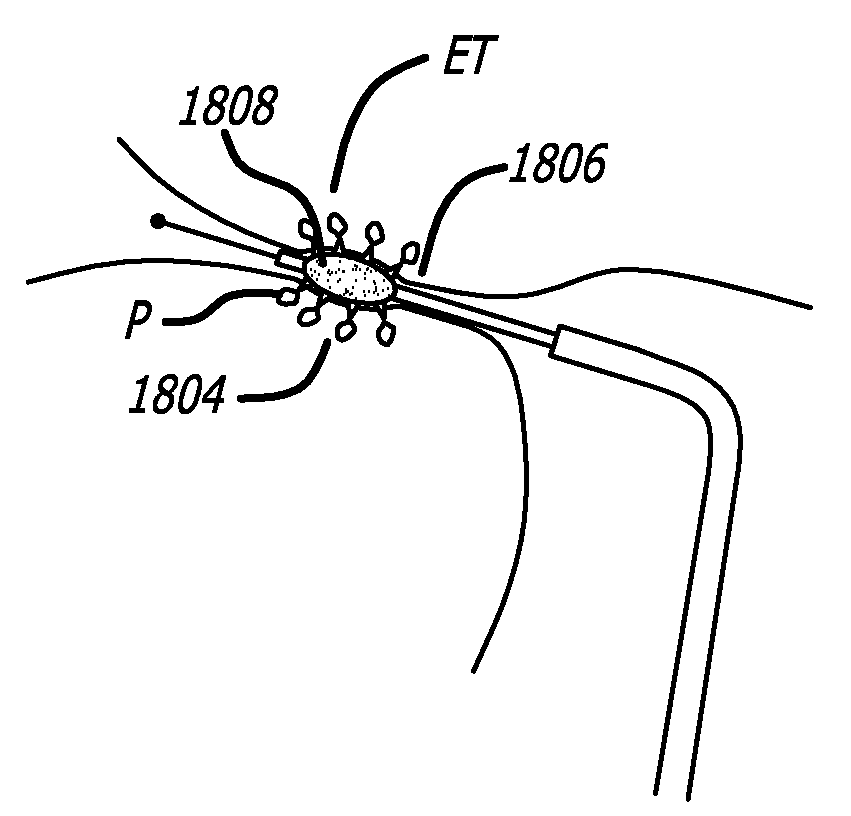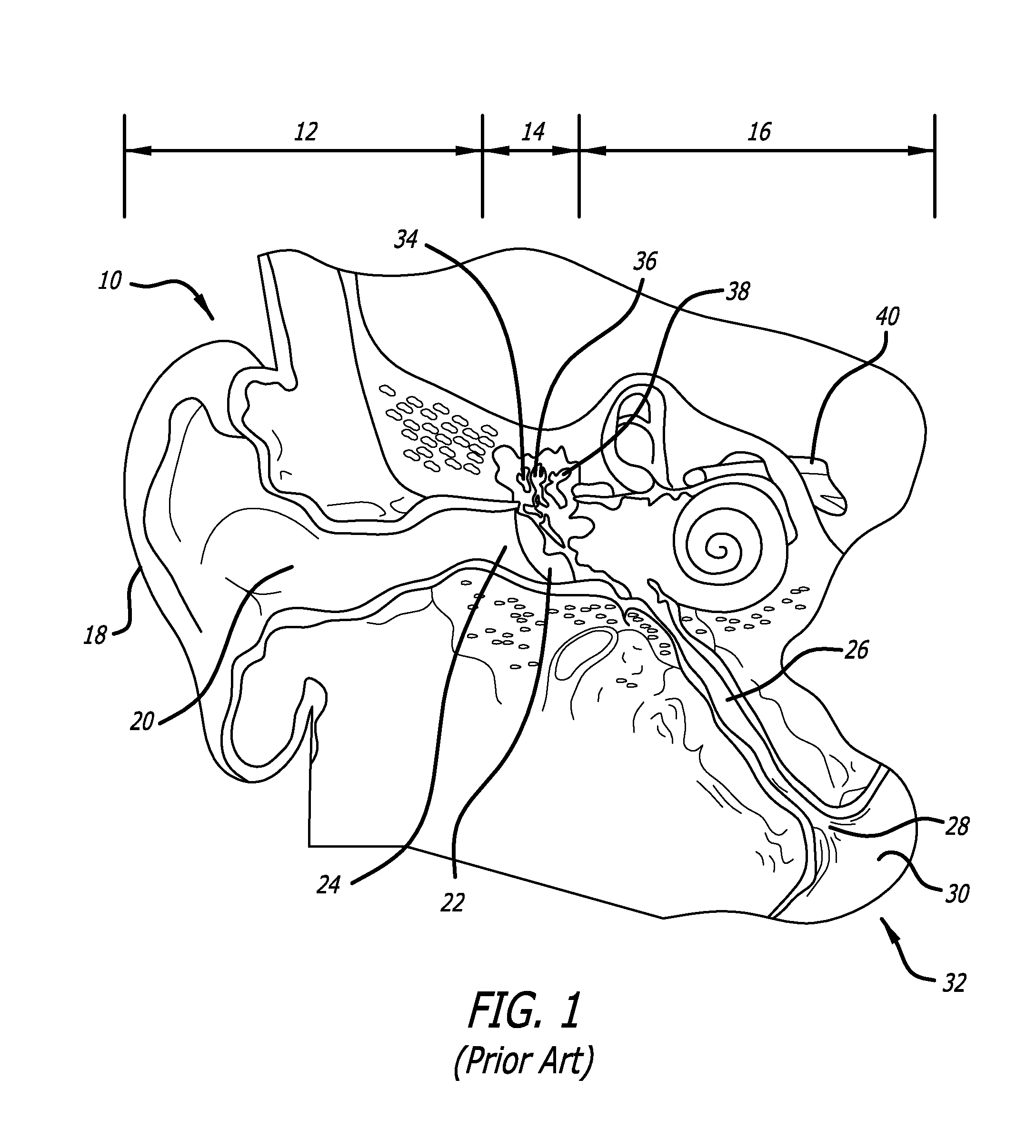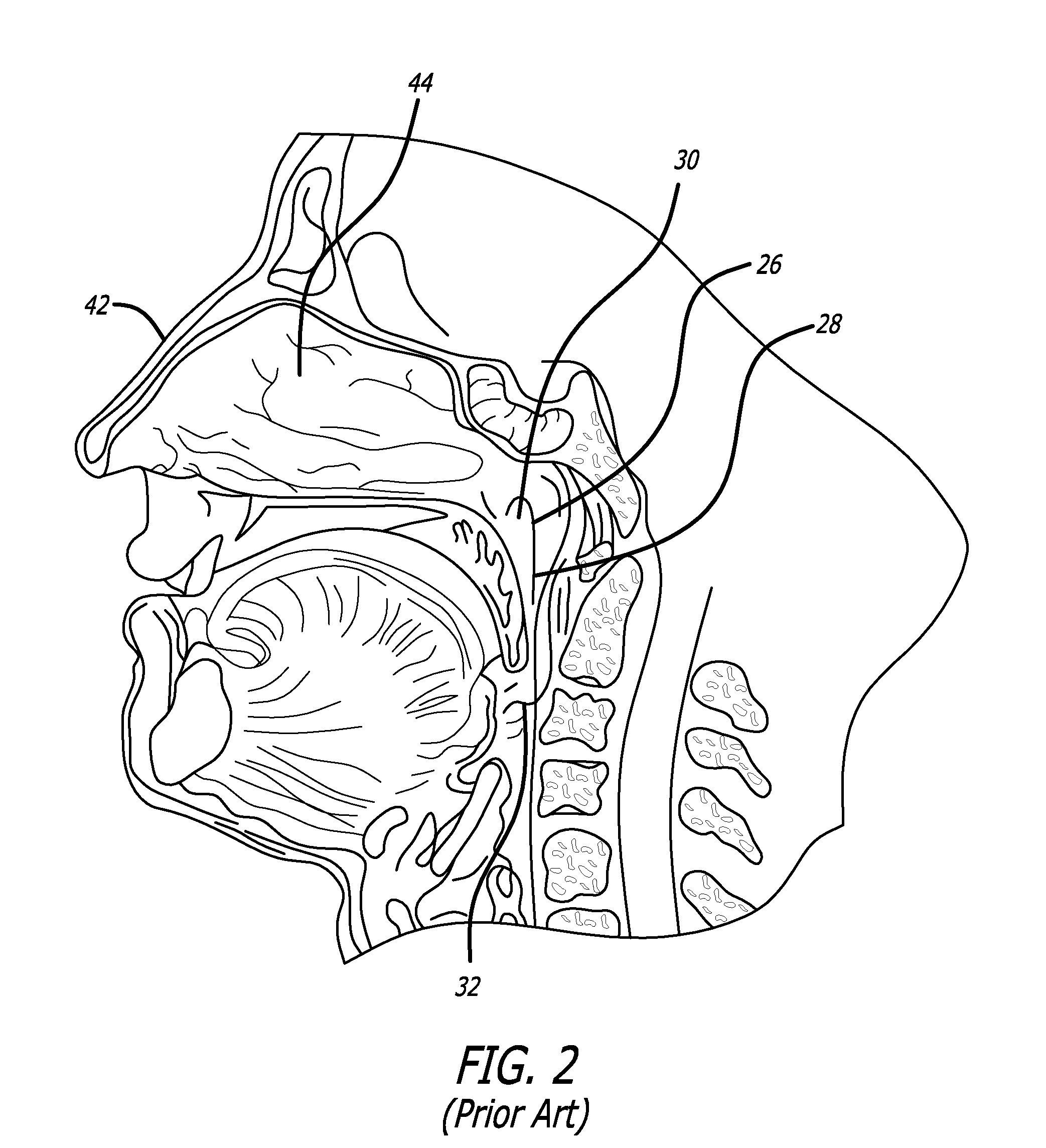Method and system for treating target tissue within the eustachian tube
a target tissue and eustachian tube technology, applied in the field of eustachian tube target tissue treatment, can solve the problems of mild hearing impairment or other ear symptoms, mucous membrane swelling, mild hearing impairment and head noise (tinnitus), etc., and achieve the effect of enhancing wetting of the mucosal surface and reducing edema
- Summary
- Abstract
- Description
- Claims
- Application Information
AI Technical Summary
Benefits of technology
Problems solved by technology
Method used
Image
Examples
Embodiment Construction
[0136]The embodiments of the present invention are directed toward methods and systems for accessing, diagnosing and treating target tissue regions within the middle ear and the Eustachian tube.
[0137]Access
[0138]One embodiment of the present invention is directed toward using minimally invasive techniques to gain trans-Eustachian tube access to the middle ear. In one embodiment, a middle ear space may be accessed via a Eustachian tube (ET). To obtain this access to the Eustachian tube orifice, a guide catheter having a bend on its distal tip greater than about 30 degrees and less than about 90 degrees may be used. Once accessed, diagnostic or interventional devices may be introduced into the Eustachian tube. Optionally, to prevent damage to the delicate middle ear structures, a safety mechanism may be employed. In one embodiment, the safety mechanism may include a probe and / or a sensor introduced into the middle ear via the tympanic membrane as shown in FIG. 7. For example, the prob...
PUM
 Login to View More
Login to View More Abstract
Description
Claims
Application Information
 Login to View More
Login to View More - R&D
- Intellectual Property
- Life Sciences
- Materials
- Tech Scout
- Unparalleled Data Quality
- Higher Quality Content
- 60% Fewer Hallucinations
Browse by: Latest US Patents, China's latest patents, Technical Efficacy Thesaurus, Application Domain, Technology Topic, Popular Technical Reports.
© 2025 PatSnap. All rights reserved.Legal|Privacy policy|Modern Slavery Act Transparency Statement|Sitemap|About US| Contact US: help@patsnap.com



